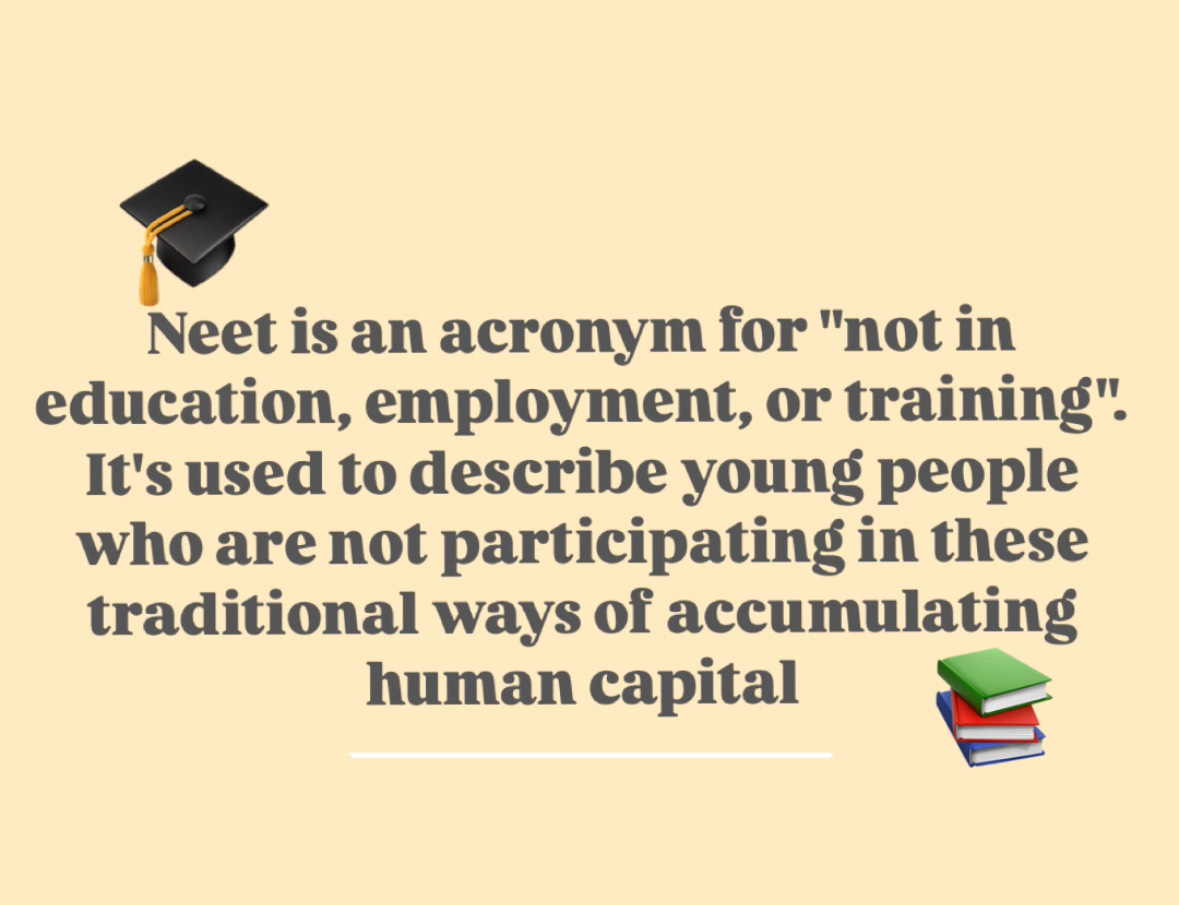In a society where the pursuit of greatness is often defined by a linear path—employment, education, training—there exists a growing countercurrent: the rise of the NEET generation. NEET, an acronym for Not Interested in Employment, Education, or Training, is more than just a label; it’s a quiet rebellion against the conventional measures of success.
It was first used in the United Kingdom during the 80s. For Generation Z, it represents a refusal to conform to a society that demands constant movement. This trend has been particularly visible in today’s generation, largely fueled by the rise of social media.
At first glance, the NEET lifestyle may seem perplexing, even irresponsible. From an early age, society teaches us that to be “successful” means to be constantly working, learning, or training for something better—that we must live a nine-to-five life until we retire. But the NEET generation rejects this narrative. For some, it is not about rejecting work altogether, but rather about questioning the structure of work, education, and life as we know it.
Kayla Shin, a senior at North Hollywood High School, shared, “The most common misconceptions about the NEET lifestyle would be that most people think that people who aren’t employed or in education are simply NEET because they are too lazy. However, one thing important that you might want to consider is that people who are living the NEET lifestyle may be lacking the opportunities for what society considers a normal lifestyle.”
Rather than laziness, the NEET lifestyle is often rooted in a deeper awareness of the limitations and pressures placed on younger generations. It’s a conscious decision to reconsider the path we’ve been told to follow, as if we were being programmed to think this way. This is particularly true for Generation Z, a generation that has seen economic instability, rising student debt, and an ever-changing job market.
Lily Rivera, also a senior at North Hollywood High School, explained, “Older Gen Z adults who were born after 1997 present a higher desire to be economically independent, rather than being attached and responsible for a family and kids during their young adulthood. This can be the result of economic and social patterns that have changed during the last decades including inflation and the advancement of technology.”
The desire for economic independence, Lily continued, often translates into a desire for flexibility—especially when it comes to how Gen Z earns a living. “That being said, the lack of this ‘family’ value led Gen Z to seek more flexible work opportunities in order to generate an income to support themselves, which can differ from a regular nine-to-five job,” she said. “What I mean by this is that if a person can generate enough income to live independently by using social media, an online position at a company, or by leading a small business online, Gen Z will do it—not because they are a ‘lazy’ generation, but because they prioritize flexibility and independence.”
So, what does success look like for the NEET generation? It might not fit neatly into the categories we’ve been taught to value, like promotions or degrees. Abigail Correa, students at North Hollywood High School stated, “being NEET i feel like takes privilege because not everyone can afford to live without working or studying.” “If you don’t have financial support or someone taking care of things, or having to pay bills would not be realistic.” “People who say it’s for everyone don’t get how tough life can be without backup income, as you can control things in life.”
For some, success may be in owning businesses, investing in stocks, or building a network through social media. Instead, success could be the ability to make a living doing something you love, or perhaps the courage to pursue a passion that doesn’t fit within the traditional frameworks of a “career.”
In the end, maybe the NEET generation isn’t just rejecting the traditional systems. There is more to life than employment, education, and training.NEET is not a rejection of work, education, or training altogether. The NEET generation is carving out a new space where they can be more than just their roles. They are exploring the vast landscape of life beyond the binary of “working” or “studying.” Perhaps they are simply embracing a different kind of learning—one that occurs in the quiet spaces of our lives, beyond the noise and pressure of the outside world.













